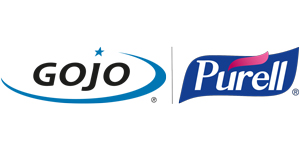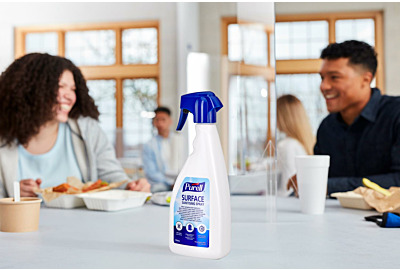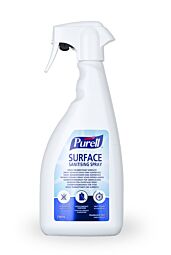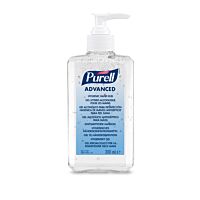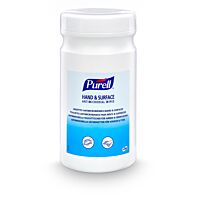Norovirus prevention in food establishments - our tips
They're in your mouth in one bite - but foodborne pathogens are rarely a treat for the palate. Now that norovirus season is at its peak, we'd like to share 5 tips that food businesses can use to prevent the spread of foodborne pathogens in their establishments. After all, outbreaks of this nature can not only damage a company's reputation, they are also costly to manage. Moreover, they endanger the health of customers and employees.
1. Sick employees should stay at home
Excluding sick employees from work, especially those with vomiting and diarrhoea, is a top priority here. This was already an important issue during the pandemic to control the transmission of COVID-19 within the workforce and protect guests. Educating staff that they should stay at home if they show any symptoms of foodborne illnesses such as diarrhoea and vomiting is crucial to prevent the inadvertent spread of norovirus through the facility. Six key symptoms to look out for are: out for are: the sudden onset of nausea, projectile vomiting, diarrhoea, high temperature, stomach pain and aching limbs.
2. Sanitising and cleaning of key areas
Cleaning well is half the battle. Focus hygiene and sanitising on key areas that can serve as a source of cross-contamination, such as toilets and children's play areas. Toilets in particular are known hotspots for norovirus transmission, as employees and guests suffering from symptoms can spread the virus by contaminating toilet surfaces.
3. The right cleaning products
However, cleaning hygiene can be as thorough as it is - if the wrong products are used, there can be no all-round cleaning. Therefore, pay close attention to the pathogens against which the cleaning solution used can be used. Most sanitisers on the market for surfaces that come into contact with food, for example, are not very effective against norovirus. Be sure to check the label of the product you are using to determine which pathogens it is effective against. Also, always follow the instructions for use that can be found on the product.
4. Our PURELL® product tips
To stop the spread of norovirus, products are needed that reliably kill foodborne pathogens. Norovirus in particular spreads quickly, is difficult to inactivate and can remain on surfaces for weeks, so it is important to use products that are deeply effective against the virus. The PURELL® range therefore includes a special sanitising spray for surfaces that demonstrates this increased effectiveness. For even more practical cleaning, you are well equipped with PURELL® sanitising wipes for surfaces. And even for hands and surface cleaning in combination, there is a solution in the form of cleaning wipes that can do both - rid hands and surfaces of norovirus. Don’t forget to wash your hands! Soap and water are among the most effective ways of preventing norovirus transmission.
5. Hand hygiene is not just for pandemics
About 75% of norovirus infections are down to community transmission, that is to say, there is no obvious contact with someone that has a confirmed case. This allows it to spread quickly, as people do not recognize the need to take extra hygiene precautions, as most of us instinctively do when we are around someone who is ill.
Practicing regular and thorough hand hygiene as a matter of habit is an excellent defence against this sort of transmission. So, make sure you haven’t forgotten the hand hygiene skills you learned during the pandemic, and put them to use on a daily basis.
